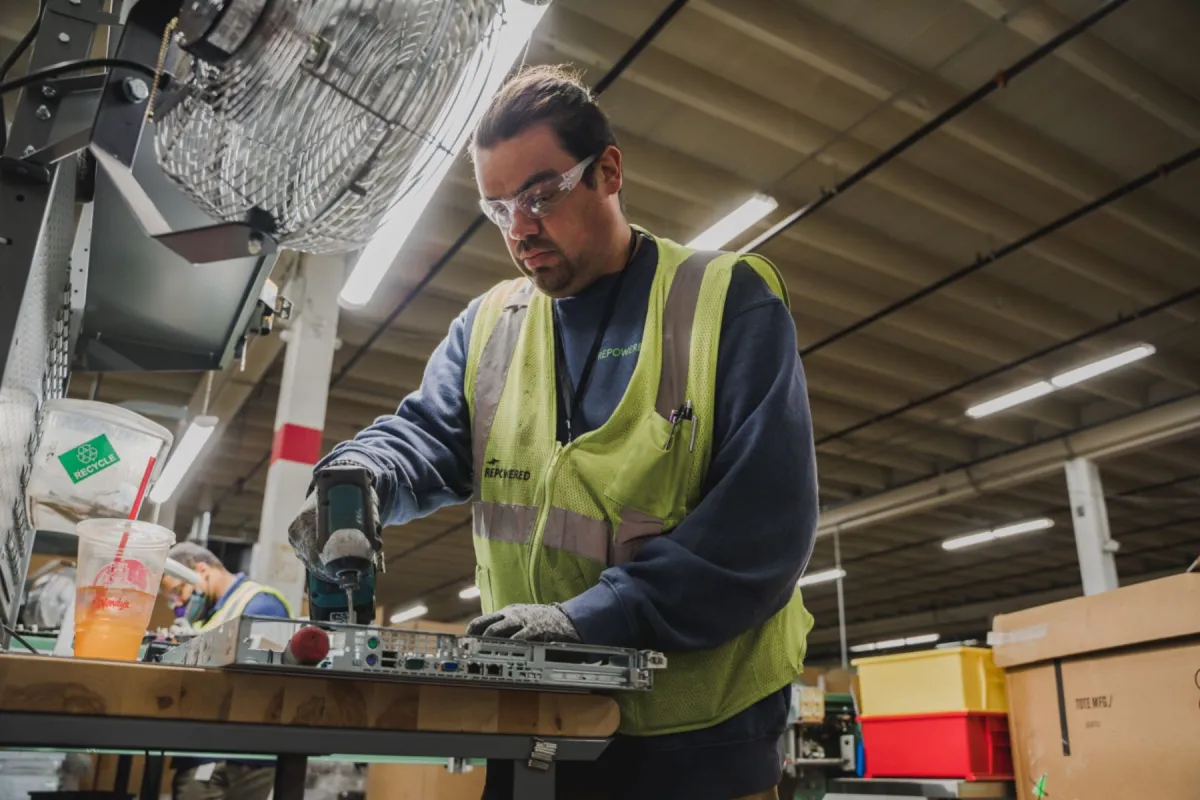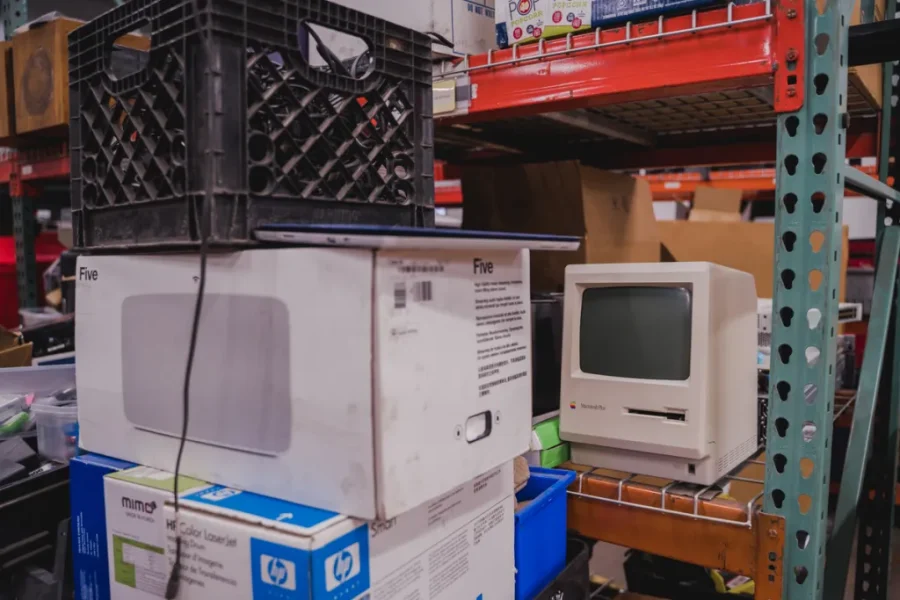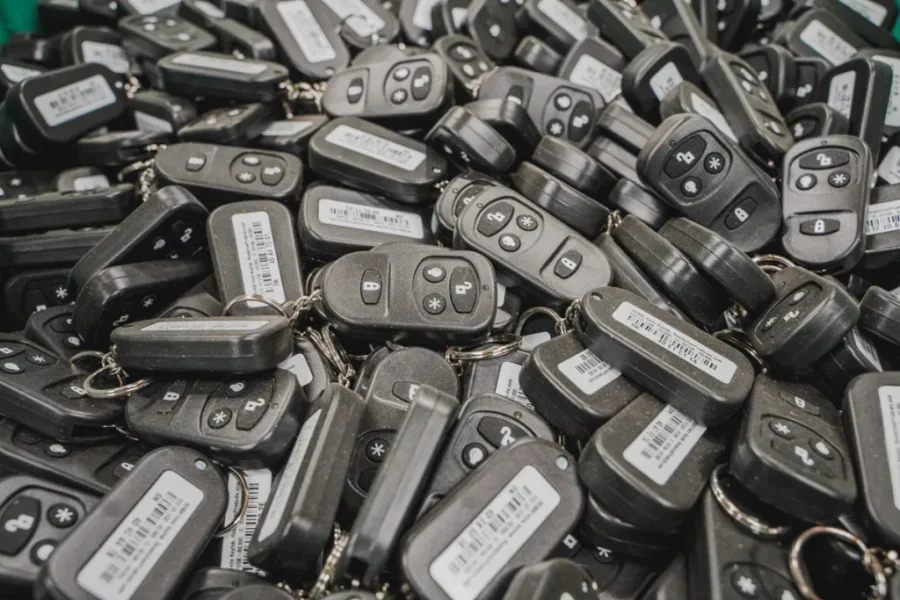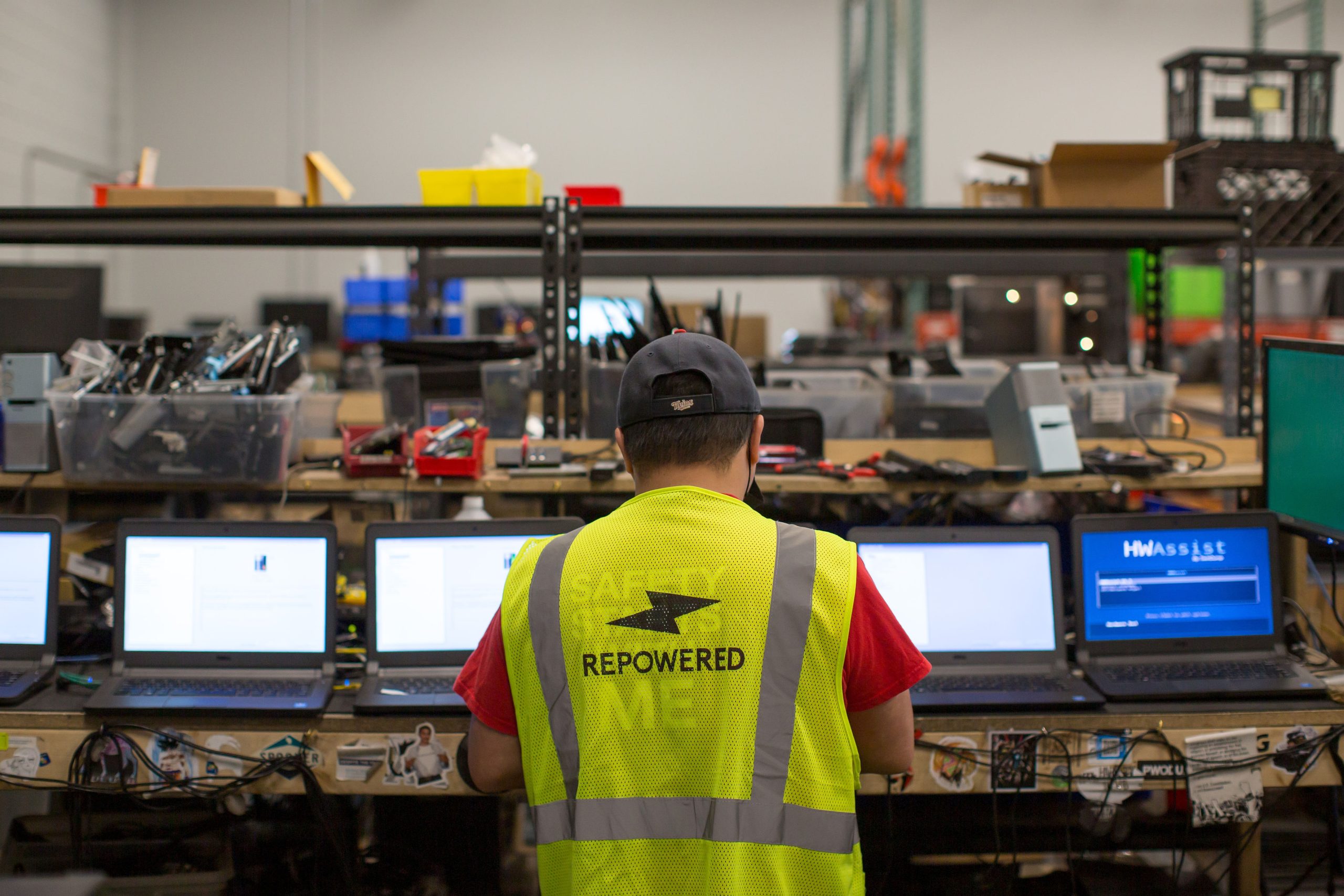
Electronic devices are getting smaller, making them easier to toss in trash bound for landfills and incinerators often located near vulnerable communities. Recycling their valuable components is more environmentally friendly.
Inside a St. Paul warehouse, people in neon green vests and safety glasses spend their days carefully taking apart old computers, harvesting valuable components and metals to be separated, broken down, and resold.
The Repowered electronics recycling building is not your standard dump. The warehouse on Vandalia Street is full of boxes containing not only old laptops and tablets, but televisions, game consoles, car key fobs, and keyboards.
Repowered, an electronics recycling nonprofit formerly known as Tech Dump and Tech Discounts, is a unique player in the electronic waste space. The nonprofit is committed to refurbishing and recycling as much as possible of the roughly 3 million pounds of electronic waste that come through its doors each year, and offers employment opportunities for Minnesotans coming out of prison.
In 2022, Repowered became the official electronics recycling collector for Ramsey County, and allows county residents to drop off electronic waste for free. That’s a rarity in Minnesota, where most counties charge collection fees for old televisions, computers, and other electronic goods.
Minnesota’s electronic waste law passed in 2007 focuses on recycling items such as televisions, computers, and fax machines. It requires manufacturers to buy recycling credits based on the weight of their products. Since then, the state has diverted more than 400 million pounds of electronics from landfills and incinerators.

A Macintosh Plus, originally manufactured in 1986, on the shelf of Repowered’s warehouse in St. Paul, MN on January 11, 2023.
But the nature of electronic waste is changing, experts say, and the weight being recycled each year is decreasing as devices become lighter, smaller, and easier to leave in a drawer or just throw into the trash. Some of the new items finding their way into landfills and incinerators are dangerous.
This year, recycling advocates are asking the state Legislature to update the program with a goal of recapturing more valuable metals, decreasing the demand for new mining operations, and keeping more hazardous waste out of landfills and incinerators that are disproportionately located near low-income neighborhoods and communities of color.
“This is a huge public health and environmental justice issue,” said Maria Jensen, environment, health, and safety specialist for Repowered.
Evolution of E-waste
When Minnesota passed its electronic waste law, massive fax machines and fat-backed, cathode ray tube televisions dominated the stream. Today, consumers are getting more functionality out of far less weight, according to Callie Babbitt, a sustainability professor at Rochester Institute of Technology in New York.
Modern devices are light-weight, and have fewer hazardous materials, Babbitt told Sahan Journal. Old cathode ray tube televisions contain a lot of lead, and early versions of liquid crystal display televisions had mercury. As a result, the volume of electronic waste recycled in the United States has been decreasing in recent years, she said, and the overall stream is less toxic than before.
The weight of electronic waste collected in Minnesota is also dropping. In 2015, 40 million pounds were recycled. In 2020, the last year with published data, it had dropped to 20 million pounds. That means less money goes into the recycling program.
While overall electronic waste is less toxic and lighter, items that find their way into landfills are a growing concern. Lithium-ion batteries are now prevalent in all sorts of products, from key fobs, to children’s toys, to bluetooth headphones. In landfills, they are highly flammable, and in incinerators, they stoke toxic fumes.
“It’s more important than ever to recycle these products, and to reuse them,” Babbitt said.

Car key fobs organized in a box at Repowered’s warehouse in St. Paul, MN on January 11, 2023. Credit: Drew Arrieta | Sahan Journal
Another issue is that modern electronics are coated in cheap plastic that is often composed of different polymer structures, which are less easy to recycle, Jensen said.
Inside the Repowered warehouse in St. Paul, the full history of American consumer electronics is on display. Several major clients give them relatively new laptops in bulk, and people cleaning out a basement after a loved one dies will bring in ancient televisions and boxes of floppy discs.
“We’re seeing stuff that’s 30 years old, and two years old,” Jensen said.
Recent News & Articles

Spotify Car Thing: What To Do Once The Device Stops Working

Second Chance Month: Why Fair Chances Are So Important

